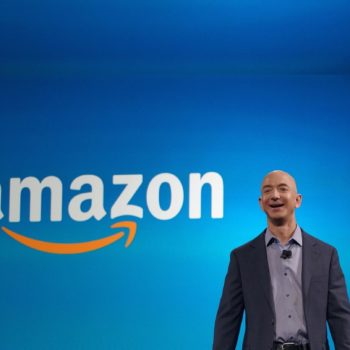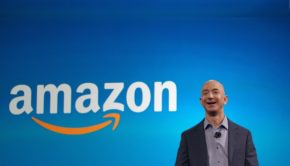Amazon’s Whole Foods deal – what’s it all about?

With the industry-shaking news that Amazon is parachuting into the US grocery market with the purchase of hip supermarket chain Whole Foods, the burning question becomes...why? Who benefits?
22 June 2017
We have discussed the looming arrival of the next generation of online grocery shopping several times in the past couple of years but, truth be told, with some exceptions it was mostly in the abstract. That all changed this week with the news that Amazon – whose ambitions to enter the grocery market were a matter of record – had purchased Whole Foods and its approximately 480 stores across the USA (plus a handful in the UK). Things got real all of a sudden, and the grocery industry across the globe sat up to take notice.
The Irish Independent reported that Dutch company Ahold Delhaize, which owns several US symbol groups, closed down 9% in Amsterdam, while Tesco was down 5% in London and Carrefour was down 3% in Paris. The global reach of Amazon is something nobody needed to be reminded of.
Motivation behind move
Anything that carries the name Amazon is enough to strike fear into the hearts of retailers all over the world, but what is Jeff Bezos’ game? Profit margins in the grocery industry aren’t particularly attractive, for one thing. In his book Reinventing Retail, however, Doug Stephens notes: “Amazon’s views on physical stores are anything but conventional. It’s certainly not opening bookstores because it needs to sell more books.”
With Amazon Fresh, the company’s till-free, automated store still in its testing phase in Seattle, you could argue that Amazon founder and CEO Jeff Bezos simply wanted to speed things up. After all, he purchased iconic newspaper The Washington Post for $250m in 2013, and has subsequently made it a massive online success.
Then again, maybe buying a chain was his plan all along. Stephens also notes that Amazon, like most online giants, is highly secretive with its plans, especially when it comes to synergy and entering new markets.
Implications for staff
The main question regarding the Amazon/Whole Foods deal is what it might mean for its 90,000 staff. Could Bezos be planning to automate Whole Foods, slashing thousands of jobs across the USA, cutting costs and boosting margins at the same time? Bezos himself said no, albeit several months ago, before this deal was a reality.
David Jinks, head of consumer research at ParcelHero says that whatever happens, this purchase is a huge opportunity. “Amazon has already done a deal with Morrison’s to deliver online in the UK,” Jinks says, “within the hour in some cities.”
One-hour grocery deliveries
Having its own bases across the USA, with customer bases ready to go, will provide Amazon the opportunity to introduce its ambitious one-hour grocery deliveries on a massive scale. “The deal makes sense as Whole Foods attracts the young, middle-class consumer Amazon is trying to reach with its expansion into new markets such as pharmacies and car sales,” Binks continues.
“The Whole Foods chain shook up the food retail industry in the same way Amazon shook up e-commerce,” he adds, “but the chain’s growth has stagnated. Earlier this year the chain announced the closure of nine stores.”
So then, it appears Whole Foods needs Amazon just as much as Amazon needs Whole Foods. Whatever happens, we are through the looking glass now. The grocery industry is not just going to change, it is changing before our very eyes, and may well be unrecognisable before we know it.



 Print
Print





Fans 0
Followers